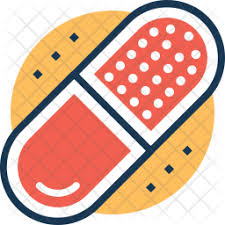Lindsey asked
Does Benadryl help with congestion? I don't like taking Sudafed and was just wondering if it could help.
At a glance
- Benadryl is marginally effective for drying up congestion, but there are more effective alternatives including nasal steroids (e.g. Flonase, Nasonex) and oral decongestants (e.g. Sudafed)
Answer

Benadryl (diphenhydramine) itself isn't a nasal decongestant, but it does have 'drying' properties, which can help to relieve mild congestion.
It is classified as 'first-generation' antihistamine, which have significant anticholinergic effects. These effects include:
- Dry mouth, dry eyes, dry skin, dry nasal passages, etc...
- Sedation
- Urinary retention
- Vasodilation
- Dilated pupils
While certain anticholinergic effects can be troublesome, they do help to provide relief of nausea, vomiting, and vertigo associated with motion sickness. Another 'first-generation' antihistamine, dimenhydrinate, is the active ingredient in the motion sickness medication Dramamine.
Additionally, drugs that have anticholinergic effects often induce drowsiness. This is why Benadryl and related antihistamines (e.g. doxylamine) are used in over the counter sleep aid products like NyQuil and ZzzQuil.
Going back to using Benadryl for congestion, there are several published studies that have evaluated how well antihistamines like Benadryl work for congestion. The general consensus is that they may provide modest benefit, but there are more effective options available:
Although oral and intranasal H1-antihistamines have demonstrated efficacy against nasal congestion in patients with allergic rhinitis, the magnitude of benefit is relatively modest and less pronounced than that observed with decongestants or intranasal steroids.
The Consensus Statement on the Treatment of Allergic Rhinitis by European Academy of Allergology and Clinical Immunology lists oral antihistamines as only having 'marginal' benefit for congestion.
Additionally, the Consensus Statement notes that 'first-generation' antihistamines, like Benadryl, are severely limited in their use for congestion due to the short duration of action (generally only 4 to 6 hours) and sedative effects.
If you are looking for a medication to best clear your congestion, nasal steroids (e.g. Flonase, Nasonex) and decongestants (e.g. Sudafed) will generally be far more effective than using an antihistamine like Benadryl.
In fact, the manufacturer of Benadryl makes a combination ingredient product specifically for congestion (Benadryl Allergy Plus Congestion) which contains both diphenhydramine and the decongestant phenylephrine.
About Benadryl
Benadryl (diphenhydramine) is a 'first-generation' antihistamine available in a variety of dosage forms including tablets, capsules, creams and as a solution for injection.
It is used for the treatment of allergies, insomnia (due to the sedative effects), motion sickness and even mild symptoms of Parkinson's disease.
Due to the sedative effects of Benadryl, it is a common ingredient in over the counter sleep aids, such as Tylenol PM.
Oral Benadryl has a fast onset of action, working within 15 to 30 minutes. The typical duration of action is 4 to 6 hours.
The most common side effects of Benadryl include:
- Dry mouth
- Dry eyes
- Sedation
References
- ^ Treatment of congestion in upper respiratory diseases. PubMed
- ^ Consensus statement on the treatment of allergic rhinitis. European Academy of Allergology and Clinical Immunology. PubMed
- ^ Benadryl Product Page. Benadryl.com
- ^ Diphenhydramine Monograph. PharmacistAnswers (DrugBank)




